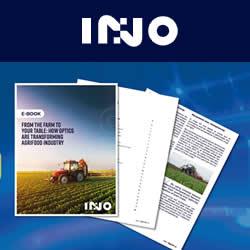Evolving Labor Trends Turn Mushroom Farming Into Lucrative (and Attainable) Option
FarmBox Foods makes starting a career in farming accessible for anyone
Nearly everyone has heard about recent workplace trends said to have arisen from the pandemic, like "quiet quitting," when in fact people have been re-assessing their priorities and career choices for years in an effort to strike a more equitable work-life balance.
There's generally more awareness about workers leaving their jobs in pursuit of something more fulfilling. Finding a passion and turning it into a lucrative source of income is the goal, and turnkey solutions like container-based mushroom farming are receiving more recognition and acceptance as a low-overhead avenue to success.
Starting a career in farming might sound daunting, but a Denver-area company called FarmBox Foods makes it accessible, even for those with no prior experience in agriculture. FarmBox Foods manufactures high-yield Gourmet Mushroom Farms inside insulated shipping containers, allowing people to grow popular varieties of mushrooms year-round and create multiple revenue streams in the process. The privately owned company also trains you how to do it.
It's a viable solution for those who don't have millions of dollars to invest in a new business venture. There's no need to buy farmland (the containers have a footprint of 320 square-feet) and all of the necessary equipment for start-to-finish mushroom cultivation is included. And customers can even finance the container farms, which generate more than $1.2 million in profits over their projected 10-year lifespan.
The farms open up opportunities for sustainable food production in places that currently lack access to fresh food, including islands. More than 90 percent of food consumed on islands is imported, which increases costs, reduces quality and results in food miles that impact the environment.
"It's something that people can really pour their heart and soul into," said Rusty Walker, CEO of FarmBox Foods. "It's not just a new career. It allows you to live and work where you want to and get a good return on your investment while doing something that gives back to the community."
The controlled-climate mushroom farms use a digital control panel and a network of sensors to monitor and automatically adjust conditions inside the farm for optimal growing. The farms can grow nearly 20 varieties of mushrooms, including lion's mane, oysters, king trumpets and reishi, and yield around 400 pounds of mushrooms per week.
To learn more about purchasing or leasing a Gourmet Mushroom Farm, or to schedule an in-person or virtual tour, visit farmboxfoods.com/gourmet-mushroom-farm/.
About FarmBox Foods
At FarmBox Foods, we strive to change the way the world farms by connecting communities to sustainably sourced, locally grown food, year-round. We bring food security, safety, and sustainability to communities through our Vertical Hydroponic Farm (VHF), Gourmet Mushroom Farm (GMF) and Hydroponic Fodder Farm (HFF), and have been doing so since 2017. At FarmBox Foods, we're crafting alternatives to centralized food systems with our high-yield, low carbon footprint container farms. Our cutting-edge farm designs promote easy operation and maintenance while reducing the risk of food-borne illnesses. Not only can our farms be equipped with solar technology allowing for off-grid operation, but our innovative hydroponic watering system does not contribute to groundwater pollution.
Featured Product

From the Farm to Your Table: How Optics Are Transforming Agrifood Industry
Agriculture is one of the pillars of our economy, providing jobs, revenue, raw materials and essential food products. However, the agricultural sector is facing many challenges, including the impact of climate change, the shortage of skilled labour and the need to produce more efficiently and sustainably. To tackle the problem, the agricultural world is undergoing a transformation thanks to new technologies and innovations based on optical technologies. In this 20-page e-book, we present how optical technologies are changing agrifood industry and the applications it now makes possible from the farm to your table.
